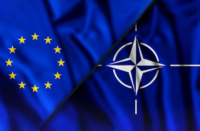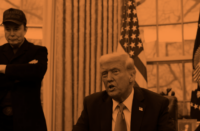The world still applauds the great effort that our government made in advocating negotiations for peace that led to a settlement, and the 1998 Good Friday Agreement on this island.
So why is our present government rejecting neutrality and refusing to lead the campaign for negotiations for peace to end the horrific Russian invasion of Ukraine.
Instead, we are parroting pro-western/NATO war propaganda, that Ukraine can win this war, with more weapons, and that at the same time we can help destroy the Russian economy.
PANA since the start of the war in Ukraine has called for an immediate ceasefire and for negotiations. Unfortunately, the response from Taoiseach Micheál Martin has always been increased EU militarisation, membership of NATO, whilst dismissing the right of Irish people to a referendum on this issue. NATO is now a global military alliance that works actively to spread nuclear missiles to its member nations in support of US militarism.
Roger Cole, Chairperson of PANA, stated, “We reject the idea that the expansion of the NATO military alliance represents a legitimate response to the current war in Ukraine, when that alliance is dominated by imperial powers such as the US, UK, France, and Germany with their own bloody history of murderous imperial wars in Afghanistan and Iraq and who continue to support brutal and oppressive regimes such as Israel and Saudi Arabia.”
The fact that ever-increasing energy and food costs, rapidly growing inflation and the cost-of-living crisis is the number one concern to Irish people and to the vast majority of people in the EU and elsewhere. This growing anger and increasing awareness of the geopolitical interests in prolonging this war may yet influence this government to accept the need for peace negotiations in Ukraine.
The Taoiseach has stated that Ireland is not a politically neutral country and that it needs to reflect on its military non-alignment. He then went on to state that Ireland would not need to hold a referendum to join NATO. This implies that he favours Ireland’s inclusion in NATO, which would terminate its neutrality and cause a rise in defence spending. Ireland’s current €1.1 billion in defence spending makes up 0.3 per cent of its national GDP. It is required of all NATO countries that they spend at least 2 per cent of their GDP on defence. This would mean defence spending would increase by at least €6.2 billion from current spending.
Recent research by the “European Council on Foreign Relations” now show that while Europeans feel great solidarity with Ukraine and support sanctions against Russia they are split about the long-term goals. They divide between a “Peace” camp (35 per cent of people) that wants the war to end as soon as possible, and a “Justice” camp that believes the more pressing goal is to punish Russia (22 per cent of people).
So how representative is our Taoiseach Micheál Martin and other EU leaders who attended their consultative dinner this week in Madrid hosted by Prime Minister Pedro Sánchez of Spain, for all 27 EU member states and all 30 members of the North Atlantic Treaty Organisation (NATO), demanding more justice, or war against Russia?






